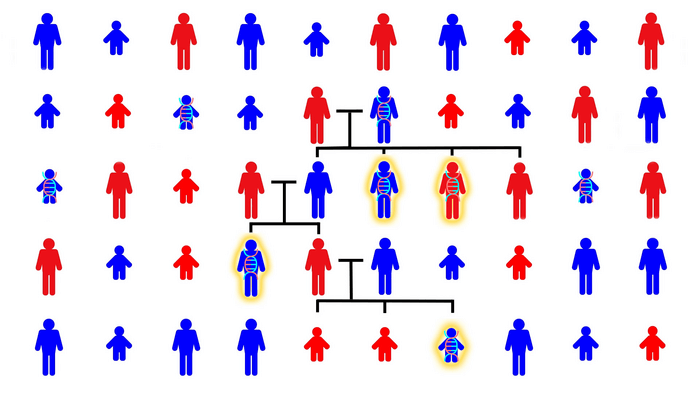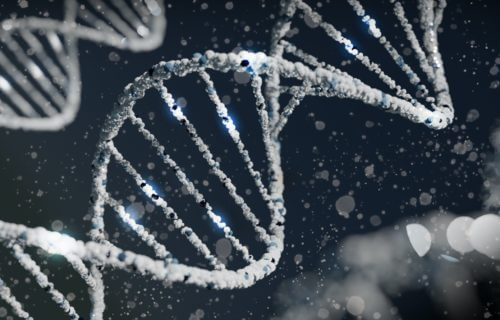COLD SPRING HARBOR, N.Y. — Children can inherit many features and traits from their parents. Now, new research finds that siblings born with autism are more likely to have inherited the condition because of genes coming from their father, not their mom. The findings contradict the common assumption that a mother’s genes dictate a person’s autism risk.
Autism spectrum disorders involve a wide range of neurological and developmental conditions. People can display these difficulties in different ways, including experiencing challenges in socializing and learning and engaging in repetitive behaviors or interests. One in every 36 children in the U.S. is autistic, according to current estimates.
“There are children diagnosed with autism who are high functioning,” says Ivan Iossifov, an associate professor at Cold Spring Harbor Laboratory and senior author of the study, in a media release. “They have a completely productive life, although they have some minor troubles in social interactions, as most of us do. But also, there are children diagnosed with autism who never learn to speak, and they have definitely a difficult life.”
Researchers at Cold Spring Harbor Laboratory have spent the last two decades researching the genetic origins of autism. During this time, they have uncovered thousands of genes that, when damaged, cause a child to develop autism. However, these findings did not explain all autism cases, leading the team to search for the missing sources.

Six-thousand volunteer families volunteered genetic data, allowing the team to study the paternal and maternal genomes. They found that having two or more children with autism was likely the result of genes passing down from the father. In families with only one sibling with autism, the children shared less of their father’s genome.
Iossifov has some theories as to why multiple children who are born with autism in the same family get more of their father’s genes. One is that some fathers may carry protective mutations that fail to get passed on. Another hypothesis is fathers are passing down mutations that trigger the mother’s immune system to attack the developing embryo.

While the discovery reveals another source of autism cases, it also begs another question: could other health conditions play by the same genetic rules?
“Our future research is exciting,” Iossifov says. “If one of those theories or two of them prove to be true, then it opens different treatment strategies, which can, in the future, affect quite a lot of families.”
The authors note the results could also help educators and therapists to make earlier diagnoses and have a better understanding of autism overall.
The study is published in the journal Cell Genomics.
You might also be interested in:
- Best DNA Test Kits: Top 5 Genetic Services Most Recommended By Experts
- CDC: Autism rates in the U.S. are skyrocketing, especially in California
- 134 new genes linked to autism discovered in human genome

